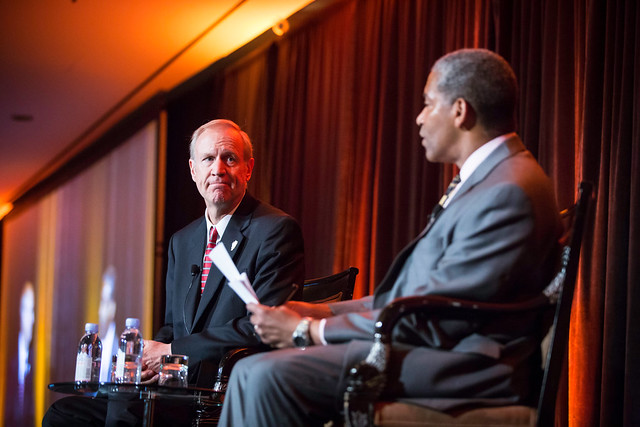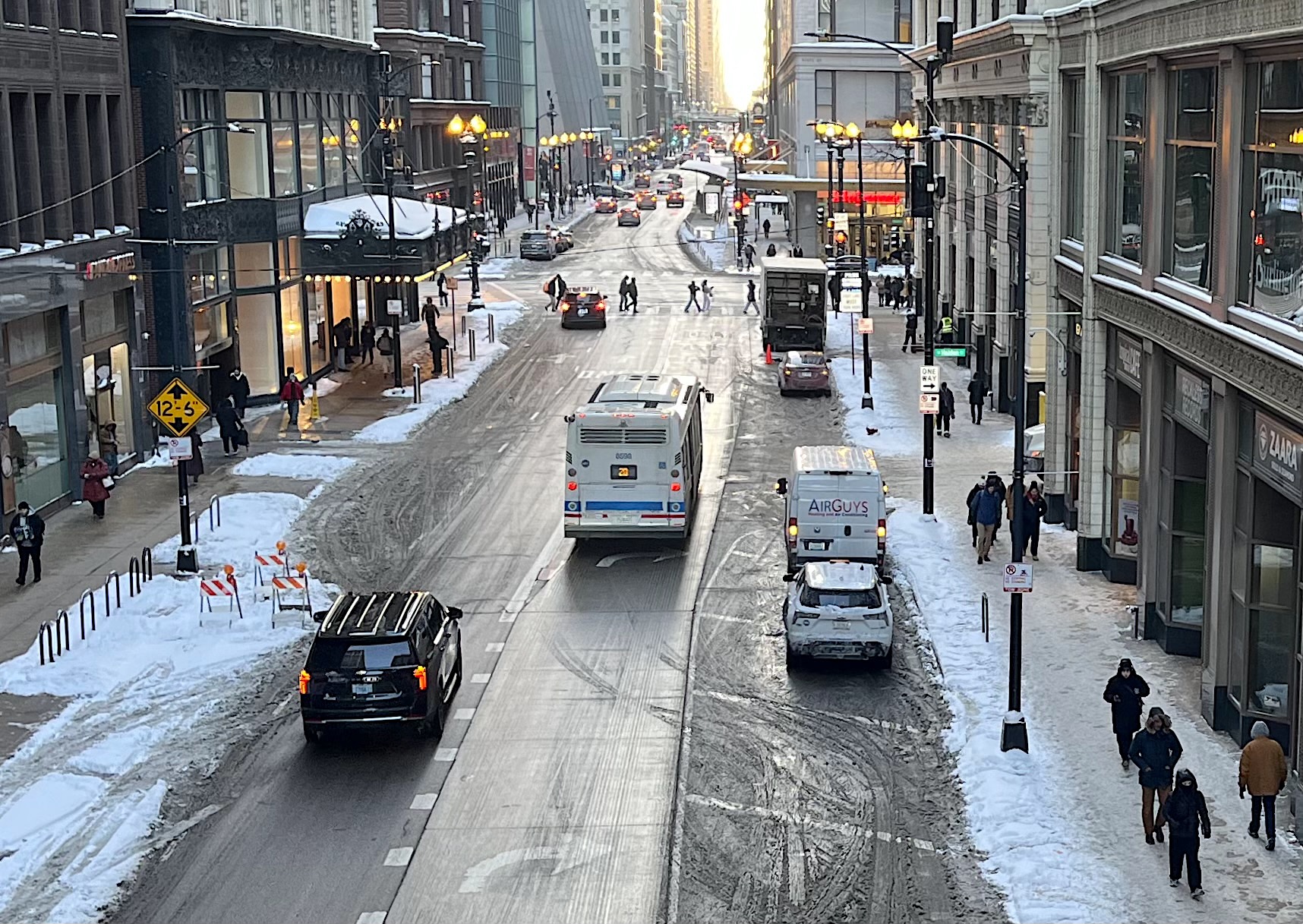
Yesterday, Governor Bruce Rauner drove a second stake into the heart of the Illiana Tollway, a sprawl-inducing highway proposed for rural Illinois and Indiana, just south of metropolitan Chicago. Rauner's office issued a press release slamming a new state budget passed by Democratic leaders as fiscally irresponsible. In response to the budget, the Republican governor announced he will cut many state programs, including the Illiana. The release states:
In light of the state's current fiscal crisis and a lack of sufficient capital resources, the Illiana Expressway will not move forward at this time. As a result, the Illinois Department of Transportation will remove the project from its current multi-year plan. It is the determination of IDOT that the project costs exceed currently available resources. The Department will begin the process of suspending all existing project contracts and procurements.
The Chicago Tribune wrote that the cuts are Rauner's strategy to force House Speaker Mike Madigan and Senate President John Cullerton to renegotiate the budget. However, it's unlikely that the governor's plan to stop the Illiana will be an effective bargaining chip.
The Illiana was spearheaded by former governor Pat Quinn, who was fighting for his political life at the time. Desperate to win votes, he was so focused on building the highway that he was willing to gamble more than $500 million in future taxpayer dollars on the boondoggle.
Most of the other politicians who pushed hard for the tollway were legislators whose districts it would have run through, as well as South Side representatives who hoped the project would create jobs for their constituents. Many other politicians understood that the road would siphon industry and residents from the rest of the region, and the resulting sprawl would be a drag on the local economy.
Rauner drove the first stake into the Illiana in January, when he froze non-essential highway spending. While no infrastructure project can ever truly die, with this recent move, the governor has taken the tollway off IDOT's current to-do list. However, the tollway currently remains on a list of potential transportation projects maintained by the Chicago Metropolitan Agency for Planning, the region's metropolitan planning organization.
In 2013, Quinn strong-armed the Illiana onto that roster. CMAP's board voted against including the tollway on the list. However, then-IDOT secretary Ann Schneider garnered the necessary votes at multiple meetings of CMAP's Policy Committee to move the project to the high-priority list.
Some of the votes came from representatives of Metra and Pace, voting against their own interest by supporting a highway that would divert transportation funding from transit. The reps were apparently worried that if their agencies didn't vote for Quinn's pet project, they would jeopardize their agency's budgets.
Randy Blankenhorn, the former CMAP head who now runs IDOT, was surely instrumental in convincing Rauner to kill the Illiana. The planning agency's analysis found that the Illiana would have had few benefits as a transportation corridor, and had the potential to be financially disastrous.
A number of local residents and organizations also helped stop the Illiana. Farmers whose land would have been destroyed by the project banded together and made the long drive downtown to attend every hearing and speak out against the tollway.
The Metropolitan Planning Council noted that, based on IDOT's own research, the Illiana would funnel Illinois jobs and residents to Indiana. To add insult to injury, Illinois taxpayers would be on the hook for the life of the project. The private concessionaire selected to build and operate the Illiana would receive availability payments guaranteeing them minimum earnings. Therefore, if toll revenue came up short, taxpayers would be forced to cough up the rest.
Quinn even tried to pass legislation to make the Illiana more attractive to potential concessionaires by prioritizing payments to the tollway operator above spending for any other infrastructure project, aside from existing obligations. Fortunately, that law didn’t pass.
The environmental groups Openlands, Sierra Club, and Midewin Heritage Association sued the Federal Highway Administration and IDOT to stop the project. The Environmental Law and Policy Center also filed a lawsuit, arguing that, according to state law, only the CMAP board had the authority to approve the Illiana -- which it didn't -- not the MPO Policy Committee.
Rauner has generally been awful on transportation -- his proposed 2016 budget calls for $193 million in statewide cuts to transit, but beefs up road funding. However, he deserves credit for doing the financially responsible thing by deleting the Illiana from the state’s plans.





